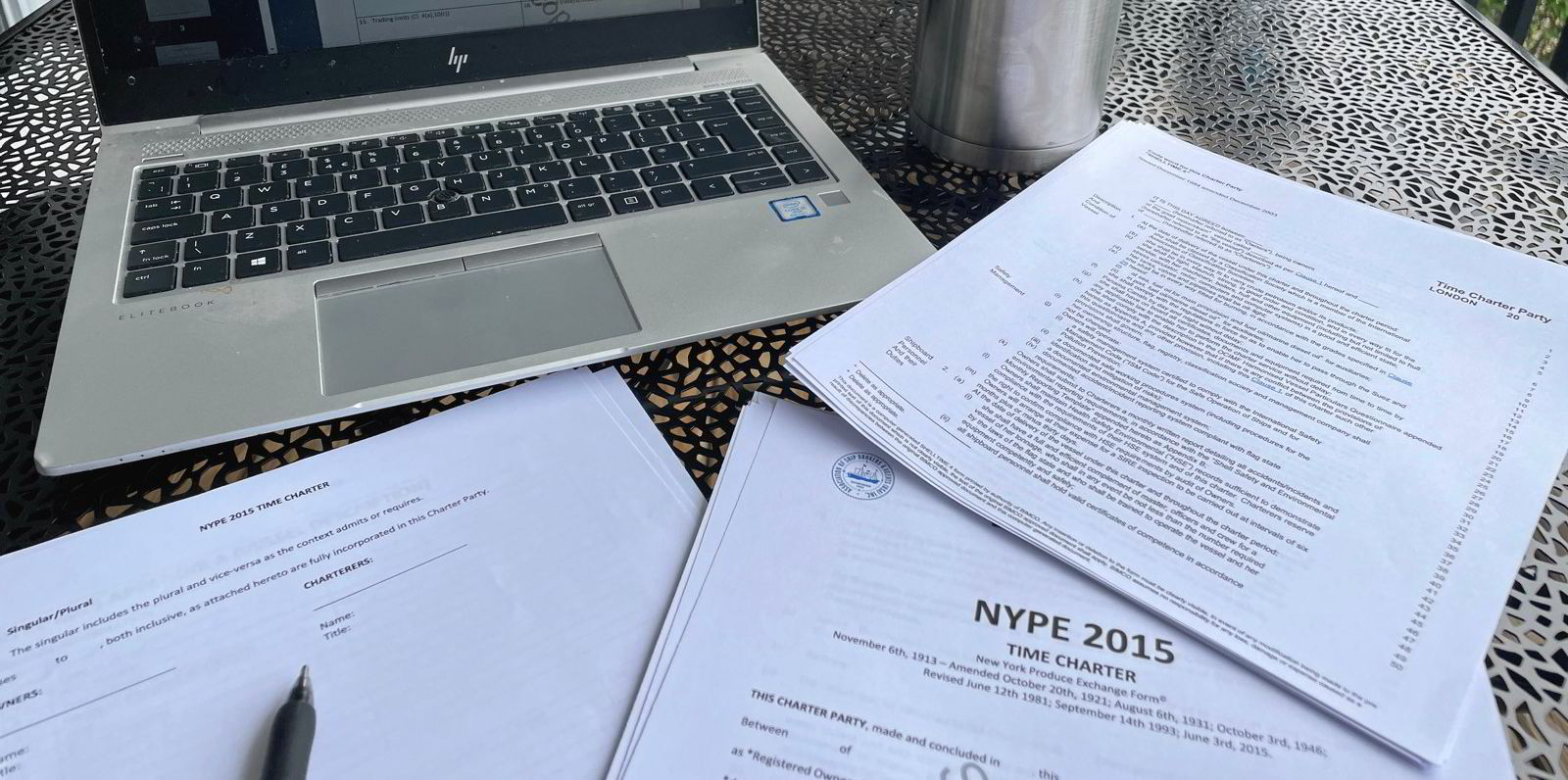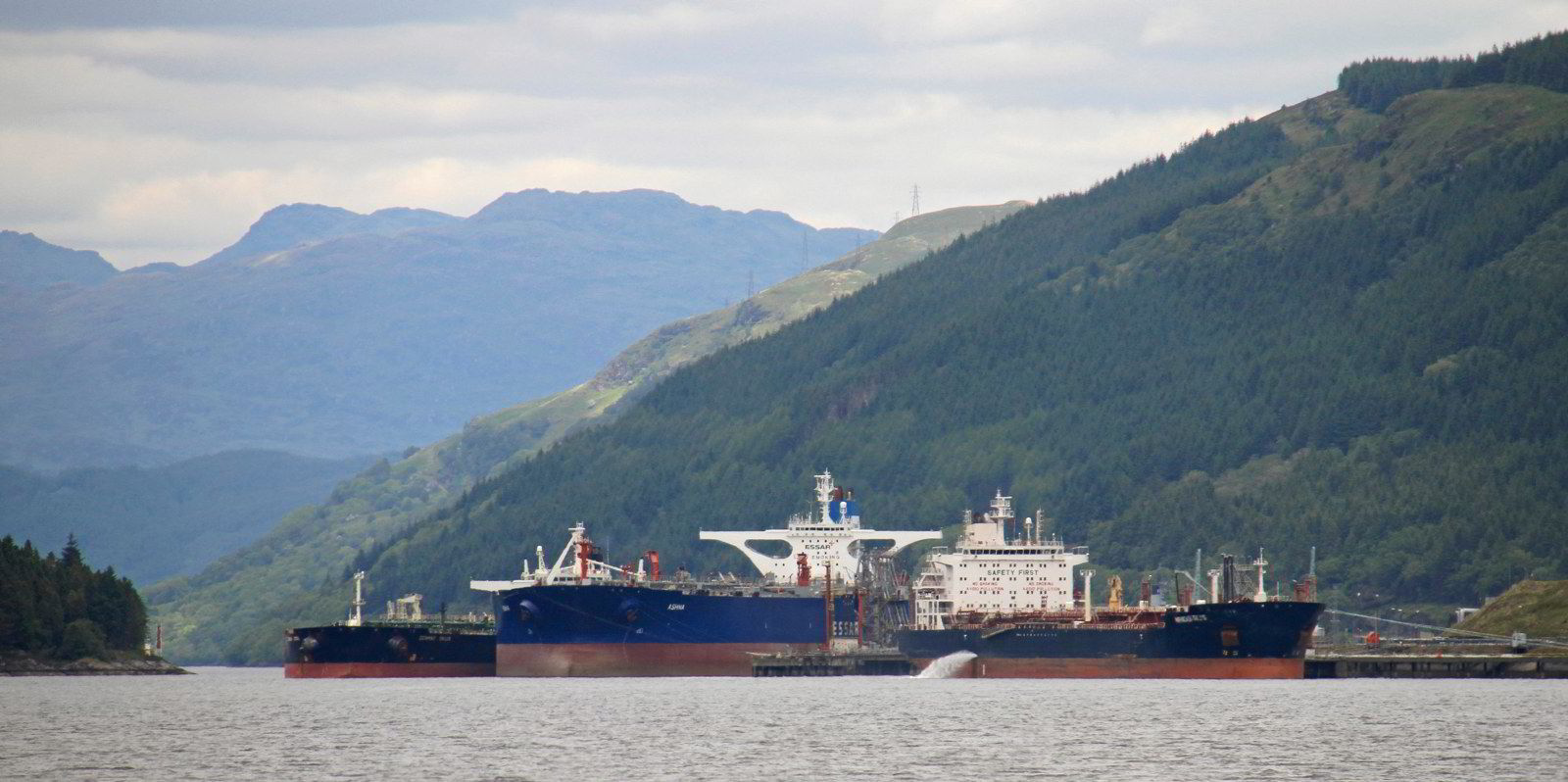To understand how templates that form the basis of shipping charter contracts have a way of sticking around, just look at the NYPE produced by the long-defunct New York Produce Exchange.
With the first version published in 1913, the template remains widely used for charterparties in the dry bulk sector long after the dissolution of the commodities exchange.
And even though industry groups have published updates to the NYPE contract’s terms since the produce exchange was liquidated in 1983, that does not mean the amendments are always used.
“The 1946 version is still being very widely used in the industry,” said Grant Hunter, head of contracts at shipowners’ group Bimco.
As shipping faces the challenge of tackling its long-neglected carbon footprint, the stubborn permanence of the old way of doing business is deeply embedded in the contracts that are at the core of commercial dealings in the industry.
As TradeWinds has reported, industry experts point to a variety of clauses in often-used form charter contracts that incentivise fuel waste, at a time when there are ample tools available to optimise voyages and operations to conserve bunkers today.
The opportunity to align the contractual relationship between shipowners and charterers with emissions reductions ambitions is a low-hanging fruit of shipping’s decarbonisation that is often left on the vine.
While there are some in the industry who are making changes, including a growing ecosystem of digital disruptors, quicker progress on decarbonisation would benefit from altering these contractual structures in a way that incentivises fuel savings while still achieving the commercial goals of a charter.

But in the bulk trades, both wet and dry, shipowners are not just price takers, they are also contract takers. With the bargaining power lopsided towards charterers, opening the door to these charter contract changes is heavily in the hands of commodities traders, energy companies, miners and agricultural groups.
Some charterers that have signed onto the Sea Cargo Charter — an initiative under the auspices of the Global Maritime Forum that aims to align chartering with the Paris Agreement on climate change by creating a structure for emissions reporting — have taken a step in that direction.
They have crafted a charter clause amendment that brings emissions reporting into the terms of contracts with shipowners, but where it requires transparency it does not yet provide incentives for action.

TradeWinds’ Green Seas newsletter has reported on how upcoming regulations at the International Maritime Organization and the European Union’s Emissions Trading System are poised to shake up shipping contracts. Because the new rules will require a combination of steps that are either under the control of the shipowner or of the charterer, greater collaboration will be required to achieve compliance.
Nautilus Labs chief executive Matt Heider — whose company was founded to help shipping optimise voyages and operations to cut carbon output and has identified contract provisions as a root cause of inefficiency — said the rules of the IMO’s Carbon Intensity Indicator (CII) is driving substantial behavioural change.
But he said the CII is not enough, because it does not provide positive incentives to do better.
“The world that we want is one where we can say, ‘Reduced emissions, and reduced fuel consumption, are beneficial to everybody.’ It’s beneficial to both sides of the charterparty,” Heider said.
He said contracts could have dynamic structures that give upside for outperformance, rather than just provide downside risk for underperformance.
But that is not something that experts such as Heider see in shipping markets yet, even as commodities companies face pressure to tackle their indirect emissions.
Bimco has been developing contract clauses that can be added to contracts to take into account IMO and EU rules that are expected to enter force next year.
But Hunter, the group’s head of contracts, said Bimco wants to start a dialogue with various shipping stakeholders about a “fourth way” that rethinks the contractural structures — time, voyage and bareboat charters — that have underpinned shipping for seemingly ages.
The sooner this conversation begins, the sooner this low-hanging fruit of decarbonisation can be harvested.






